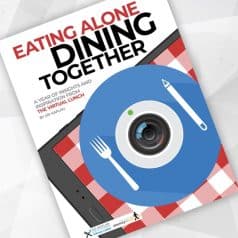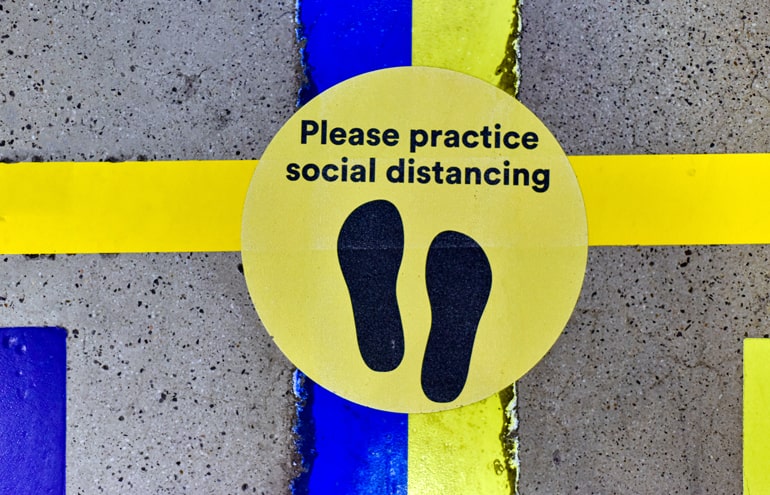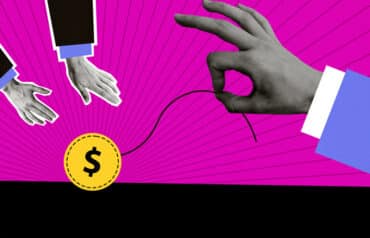An ABA survey shows that women, working parents, and minority attorneys have suffered disproportionally. Is this our chance to remake the profession for the better?
Change in the legal profession tends to occur not at a snail’s pace but in geologic time. But during COVID-19, things some attorneys and advocates have been trying to achieve for decades — like part-time work, flex-time schedules and remote work — were suddenly the norm as attorneys and firms of all sizes did their best to cope and find new ways to work.
And guess what? It has worked. Most law firms survived, and many, with some sacrifices and federal loans, saw increased profits.
“Practicing Law in the Pandemic and Moving Forward,”released in late April, surveyed more than 4,200 ABA members, one of the largest surveys ever by the association. The survey focuses on law practices in the U.S., where the pandemic is increasingly under control as vaccination rates rise.
The survey was commissioned by the American Bar Association’s Coordinating Group on Practice Forward. In the main, it’s the ABA’s version of “never let a good crisis go to waste,” a motto favored by both Winston Churchill and former Chicago Mayor Rahm Emanuel.
“Periods of major disruption can offer tremendous opportunities for leaders to rethink paradigms and improve processes,” ABA President Patricia Lee Refo said in a press release. “This report sets out a range of practices for legal employers to consider the best path forward.”
The Question Is, Will Those Stick?
The newly released survey was conducted in fall 2020, before any promising news about a vaccine and before we could fantasize about any semblance of a “new normal.” It finds that “across the board, in every category, women and attorneys of color reported higher anxiety levels and pressures from all fronts (feeling disconnected, worrying about business development, etc.) than their white male counterparts.”
And while thoughts of leaving the law are a constant lament for some, a third of respondents wondered if they should stop practicing altogether.
“As shown by the data, ABA members generally show much higher levels of stress in trying to manage work and home; higher levels of disengagement with the social aspects of work; and more frequent thoughts about whether full-time work is worth it,” the survey states.
Is This Enough? Resolutions 300A and 300B
When preliminary data was released in February at the virtual Midyear Meeting, the ABA offered two resolutions. Resolution 300A encourages courts, bar associations, legal employers and law schools to develop and make accessible resources, such as educational programming or employee assistance programs, to advance well-being in the profession.
The Coordinating Group on Practice Forward also asks those entities to adopt policies that encourage judges, lawyers and law students to use available resources.
The second measure, Resolution 300B, urges Congress and state, local, territorial and tribal legislatures to pass legislation and provide adequate funding to ensure access to “fair, affordable and high-quality child care and family care.”
Practicing Law in the Pandemic: Parental Concerns
More than 50% of women with children ages five or younger said they would rather work part-time, compared with the overall average of 35%. The stress doesn’t lessen significantly as the kids enter their school-age years. More than 40% of women with children older than five also indicated a willingness to work part-time. Thank you, Zoom school, for the chance to repeat this commonsense refrain. Raising young humans takes effort, no matter the level of support a parent or guardian may have. They are, in the best way, very promising but very needy clients.
In the past three months, nearly every attorney — contract or staff attorney, associate or partner — I’ve spoken with knows at least one colleague who has pressed “pause” on their career, or who has taken time off and then reinvented themselves, often at a smaller firm or as a solo practitioner. Those individuals who transformed their careers report anecdotal higher levels of career satisfaction.
From my interviews, experiences vary widely among those who have stayed in their current roles, often by race and ethnicity. And the survey bears that out:
“For many of these questions, race and ethnicity showed an even greater impact. Compared to a year ago, lawyers of color have even higher levels of stress about work; are more likely to think the day never ends; have greater difficulty taking time off from work; feel overwhelmed with all the things they have to do; feel it is hard to keep work and home separate; and find work disrupted by family and household obligations.”
It’s not from lack of trying. Regardless of gender, race or ethnicity, most lawyers report they are working longer hours and suffering from the lack of whatever buffer a commute might offer to work-life balance. More than half (57%) worked 41 or more hours per week and close to 80% of the sample continued to work full-time or close to full-time.
So That Sucks
According to the survey report:
“In contrast, white lawyers were significantly more likely than lawyers of color to miss seeing people at the office, feel disengaged from their firm or employer, think it would be better to work part-time or to stop working entirely. These differences may reflect the greater engagement that white lawyers typically feel in the workplace, the comparatively greater economic flexibility enjoyed by many white lawyers, and the older age of white lawyers.”
Another source of worry for many law firm leaders and industry observers is that women, diverse attorneys and younger lawyers report spending less time generating new business. That is understandable. A focus on surviving or coping, without sufficient firm support, leads to less business generation and a long-term impact on these individuals’ careers.
COVID Business Development Long-Haulers
Which is to say that the legal profession will have COVID survivors, and then long-haulers, who experience sustained deleterious effects. How can the profession mitigate those? That’s what the next blue-ribbon commission needs to consider. Firms and employers need to look at the pandemic for the outlier it is and evaluate lawyers accordingly. There has been little to nothing “normal” about the last 14 months for many, many attorneys.
“About 55% are spending less time on developing business or reaching out to clients. The presence of younger children in the household predicts even less outreach to clients.”
The result could be a chasm in their advancement that proves too wide to bridge. Even if these attorneys stay the course, will they survive the pandemic’s long-term implications for their books of business?
The survey dove into the specifics. Regarding workplace resources and recognition, it asked lawyers whether, compared to a year ago, these experiences were more frequent:
- Getting overlooked for assignments or client opportunities
- Not receiving enough recognition for work you do
- Getting help with business development
- Receiving training and coaching
- Worrying about advancement
- Worrying about salary reduction
- Worrying about getting furloughed or laid off
“Every one of these seven concerns was experienced significantly more often now compared to a year ago, regardless of gender, race/ethnicity, or practice setting. At the top of the list were (a) more worry about a salary reduction (55%), (b) worry about getting furloughed or laid off (40%), and (c) worry about advancement (28%).”
But some groups of lawyers had higher levels of concern. Specifically:
- Women generally worried more often about advancement, receiving a salary reduction, and getting furloughed or laid off.
- Women with children felt more often than others that they were overlooked for assignments or client opportunities.
- Lawyers of color, regardless of gender, worried more often about advancement.
Is Current Stress Due to the Pandemic, or Is It Endemic?
This is not due entirely to the pandemic, the survey notes. Women and lawyers of color often feel additional stress at work simply because of their gender, race or ethnicity.
“The stress comes from a number of sources, including the feeling of standing out in a negative way from others at work; of having to represent your race or ethnicity or gender as the perfect role model; of not being accepted for who you really are; of having to hide your authentic self; of not being heard to the same extent as others; and much more. Higher levels of stress, feelings of social isolation, and always feeling ‘different’ are reasons why women and minorities leave law firms more often and sooner than majority lawyers and men.”
But notably for the moms, there is also this finding:
“We note that women lawyers who are shouldering the disproportionate burden of childcare and homeschooling are more anxious about meeting billable hour requirements and that their performance evaluations and compensation will be harmed because of an inability to manage their workload during the pandemic and meet client demands.”
Also, for the most part, employers were not reducing billable hours requirements and workloads amid the COVID-19 crisis despite the salary freezes, reductions and furloughs at many firms. For many attorneys, this has heightened the sense of disillusionment and disenchantment with their jobs. I spoke to one young staff attorney at an AmLaw 20 firm who described what sounded liked PTSD after watching all his peers being furloughed or laid off and feeling the pressure to meet pre-pandemic goals. He waited each night for the bomb to drop, and when it didn’t, had survivor’s guilt.
The survey also noted a difference in how secure attorneys feel in expressing concerns about workplace conditions, including health and safety:
“More women than men reported being ‘very concerned’ or ‘extremely concerned’ about expressing health/safety concerns to an employer (10% of women versus 3% of men); that working remotely would be viewed as lacking commitment to an employer (22% of women versus 8% of men); and that working remotely would create a risk of being put on furlough or having their job terminated (11% of women versus 5% of men). Lawyers with younger children, both women and men, were more likely to be very or extremely concerned about each of these three issues.”
Less Office Space, More “Me” Time
While there is much that needs to be addressed in the profession, where attorneys do their work and the amount of face time required may be silver linings of the pandemic.
“The majority of respondents (66%) believe it is likely or very likely that many lawyers in their particular workplace will continue working mostly or entirely remotely in 2021 and 2022. In that context, a sizable number of respondents —36%—reported that their personal preference is to have the flexibility to choose their own schedule from week to week. The remaining lawyers split roughly evenly between the option of working 4–5 days a week in the office (23%), or 2–3 days a week in the office (21%) or 1 day a week or rarely in the office (19%).”
“We can work remotely 100% of the time,” said Melissa Peters, an attorney with Littler.
And while some law firms have cut salaries and furloughed staff and attorneys, many law firms have seen record profits, proving that working remotely is not a drag on earnings.
The survey, though, noted that “roughly 30% of lawyers anticipate that revenue is likely or very likely to increase in the next two years, while 27% believe that revenue is unlikely or very unlikely to increase, and 43% are not sure.”
BLUF: Bottom Line Up Front
Overall, the survey report reveals what it calls “striking differences in how lawyers view their workplaces.” And, it more specifically states, “Our data should raise alarm bells that there is a real potential for an exodus of diverse talent if implicit biases and differential treatment are not redressed.”
The shifts required in the pandemic present a unique opportunity for law firms to pivot to policies that accommodate the very real needs of their human capital-intensive industry. Just as other employers are figuring out what it means to accept a hybrid workplace, law firms of all sizes will need to discover what models work for their revenue-generators.
Read more about the survey in the ABA Journal here: “ABA’s Practice Forward Group Explores the Effect of COVID-19 on the Future of the Profession.”
Illustration ©iStockPhoto.com
New eBook Marks a Milestone Year
“Eating Alone, Dining Together: A Year of Insights and Inspiration From the Virtual Lunch”


















